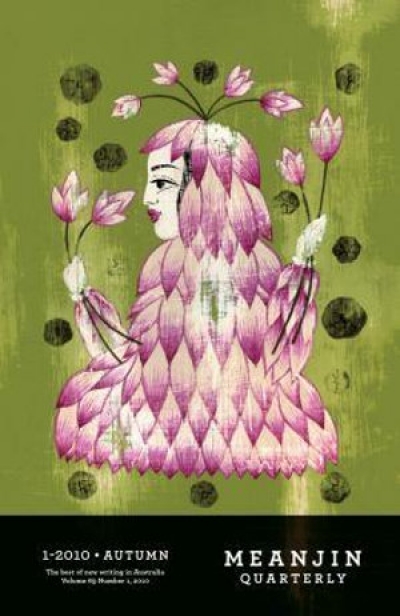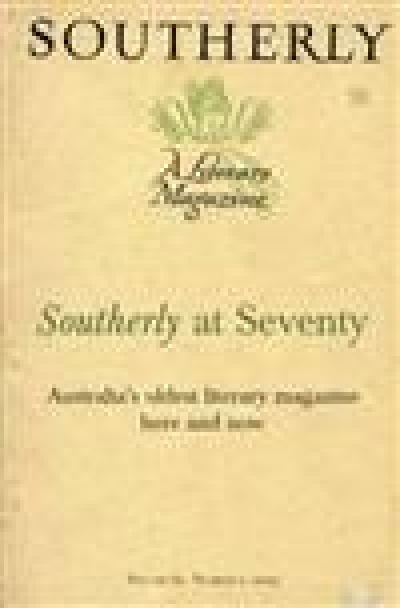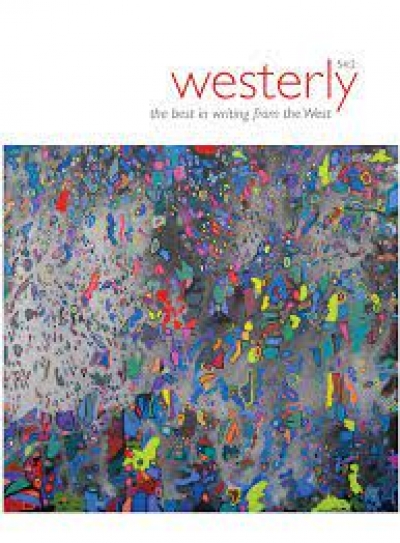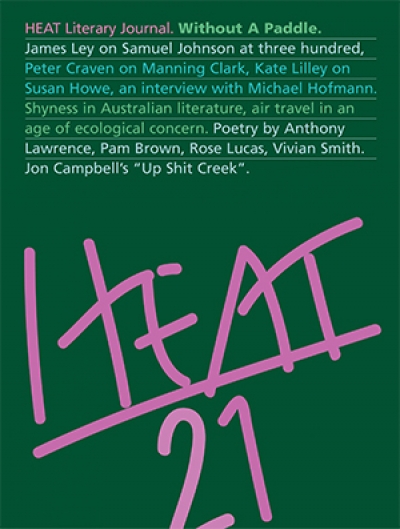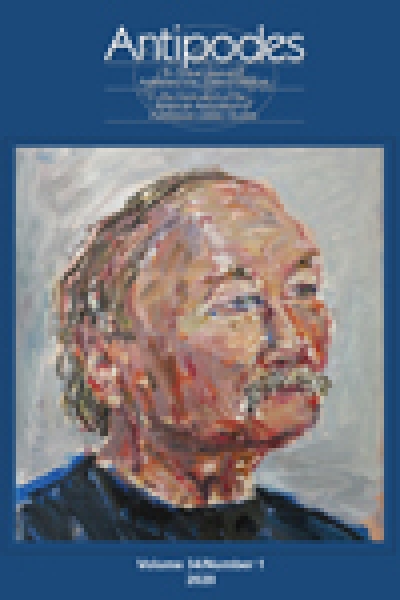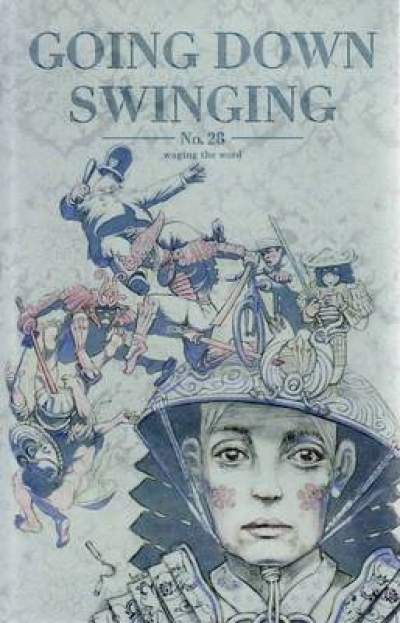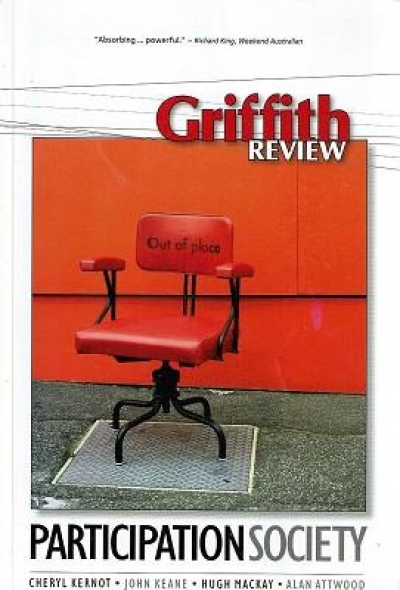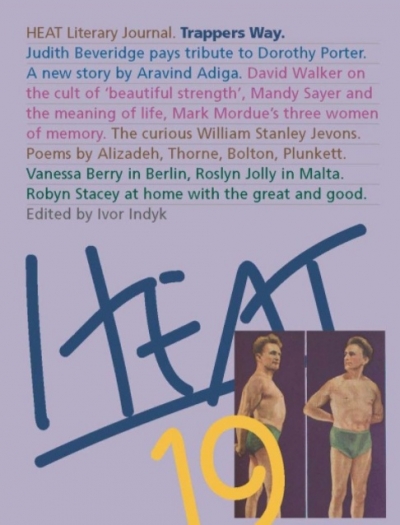Journals
Southerly, Vol. 70, No. 1 edited by David Brooks and Elizabeth McMahon
by Simon West •
Transnational Literature, Volume 2, Issue 2 edited by Ioana Petrescu
by Patrick Allington •
Southerly, Vol. 69, No. 2: Southerly At Seventy edited by David Brooks and Elizabeth McMahon
by Jeffrey Poacher •
Westerly, Vol. 54, No. 2 edited by Sally Morgan and Blaze Kwaymullina
by Patrick Allington •
Going Down Swinging, No. 28 edited by Lisa Greenaway and Klare Lanson
by Tim Howard •
Griffith Review 24: Participation Society edited by Julianne Schultz
by Anthony Lynch •

